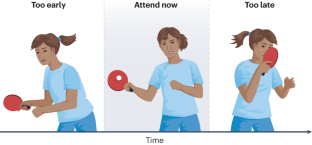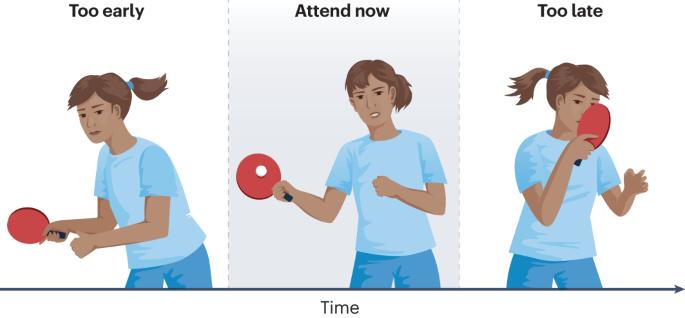Visual temporal attention from perception to computation
IF 16.8
Q1 PSYCHOLOGY, MULTIDISCIPLINARY
引用次数: 0
Abstract
Visual attention unfolds across space and time to prioritize a subset of incoming visual information. Distinct in key ways from spatial attention, temporal attention is a growing research area with its own conceptual and mechanistic territory. Here I review key conceptual issues, data and models in the field of visual temporal attention, with an emphasis on voluntary temporal attention. I first situate voluntary temporal attention in the broader domains of temporal attention and attentional dynamics, with the goal of organizing concepts and findings related to dynamic attention. Next, I review findings that voluntary temporal attention affects visual perception in a selective fashion — prioritizing certain time points at the expense of other time points. Selectivity is a hallmark of attention and implies a limitation in computational resources that prevents sustained maximal processing of all time points. I discuss a computational model of temporal attention that captures limited resources across time and review other models of attentional dynamics. Finally, I discuss productive future directions for the study of temporal attention. Visual temporal attention involves the prioritization of certain points in time at the expense of others. In this Review, Denison synthesizes experimental results and computational models of voluntary temporal attention and distinguishes it from related phenomena.


从感知到计算的视觉时间注意力
视觉注意力跨越空间和时间展开,对传入视觉信息的子集进行优先排序。时间注意在关键方面有别于空间注意,它是一个不断发展的研究领域,有自己的概念和机制领域。在此,我将回顾视觉时间注意领域的关键概念问题、数据和模型,重点是自主时间注意。首先,我将自主时间注意置于更广泛的时间注意和注意动态领域中,目的是整理与动态注意相关的概念和发现。接下来,我将回顾自愿时间注意以选择性方式影响视觉感知的研究结果--优先考虑某些时间点而忽略其他时间点。选择性是注意力的一个特征,它意味着计算资源的限制,这种限制阻碍了对所有时间点的持续最大化处理。我将讨论一个能捕捉跨时间有限资源的时间注意力计算模型,并回顾其他注意力动态模型。最后,我将讨论时间注意力研究的未来发展方向。
本文章由计算机程序翻译,如有差异,请以英文原文为准。
求助全文
约1分钟内获得全文
求助全文

 求助内容:
求助内容: 应助结果提醒方式:
应助结果提醒方式:


